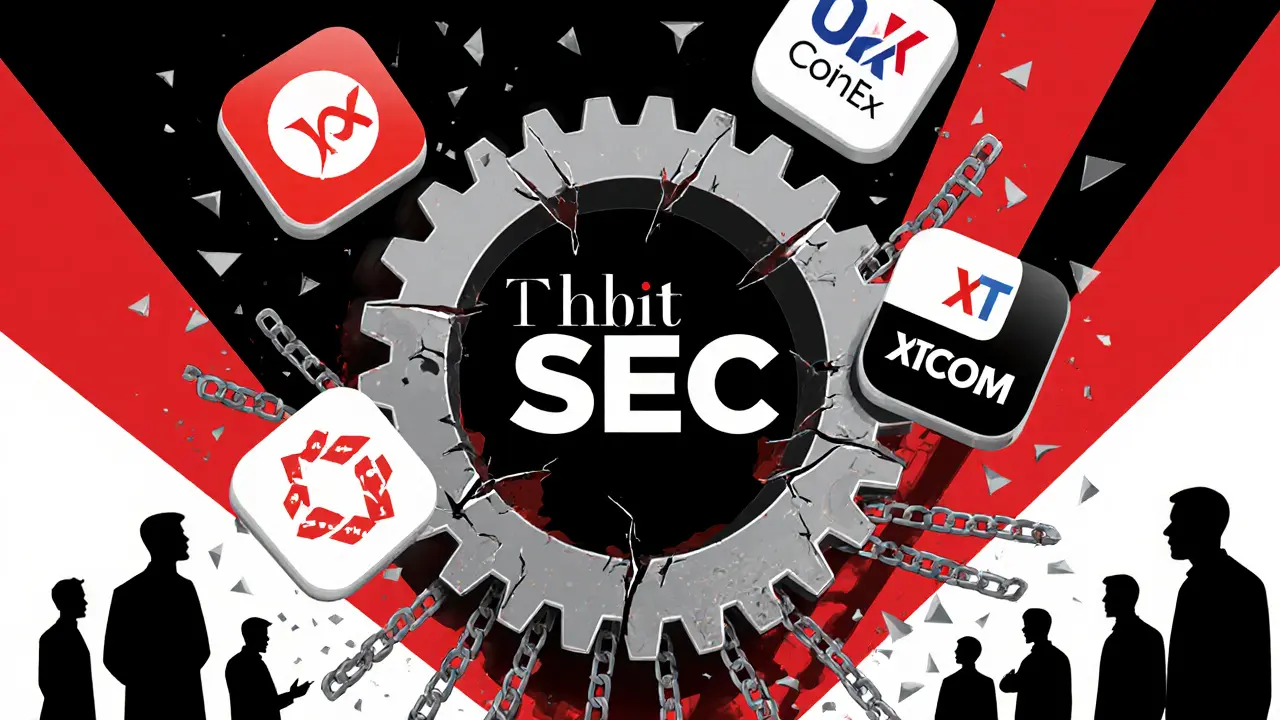
Thailand banned foreign P2P crypto platforms in 2025 to stop scams and money laundering. Five major exchanges were blocked, and only licensed local platforms are now legal. Here's what it means for users and businesses.
When it comes to Thailand digital asset regulation, the official framework that governs cryptocurrency trading, exchanges, and token issuance in Thailand. Also known as Thai crypto laws, it’s one of the most structured systems in Southeast Asia, managed by the SEC Thailand, the Securities and Exchange Commission of Thailand, the main authority overseeing all digital asset activities.
Thailand doesn’t ban crypto—it controls it. Unlike countries that shut down exchanges or freeze accounts, Thailand requires every platform to get licensed. That means if you’re trading on a Thai exchange like Bitkub or CoinGate, it’s been checked by the SEC Thailand for security, anti-money laundering, and user protection. This isn’t just paperwork—it’s a full audit. Exchanges must keep user funds separate, report suspicious activity, and verify every customer. If they fail, they lose their license. That’s why Thai exchanges are among the safest in the region.
And it’s not just about exchanges. The crypto taxation Thailand, how the Thai government treats profits from buying, selling, or trading digital assets is clear: if you make money, you pay tax. The Revenue Department treats crypto gains like regular income. No gray area. No loopholes. You report it, or you risk penalties. Even airdrops and staking rewards count. And if you’re a foreigner living in Thailand? You still owe taxes on crypto you trade or sell while you’re there. The system doesn’t care where you’re from—it cares where you are.
There’s also a push for innovation. Thailand allows tokenized assets, like real estate or bonds, on blockchain. The SEC Thailand has a sandbox program where startups test new crypto products under supervision. It’s not free-for-all—it’s controlled testing. That’s why you’ll see Thai projects launching tokens for gaming, loyalty programs, or even carbon credits. But here’s the catch: if it’s a token meant for investment, it must be registered. No anonymous launches. No pump-and-dump schemes. The rules are strict, but they work.
What you won’t find in Thailand is a wild west of unregulated DeFi apps or shady meme coins being sold like stocks. The SEC Thailand shuts those down fast. If a project doesn’t have a whitepaper, a team, or a license, it’s blocked. That’s why Thai investors are more protected than in many other countries. But it also means fewer high-risk, high-reward plays. If you’re looking for the next 100x meme coin, Thailand isn’t the place. But if you want to trade crypto without worrying about your exchange vanishing overnight—you’re in the right spot.
Below, you’ll find real-world examples of how these rules affect traders, what happens when exchanges get caught breaking them, and how Thai crypto users stay compliant without losing their heads. No theory. No guesswork. Just what’s actually happening on the ground in Thailand’s crypto scene.

Thailand banned foreign P2P crypto platforms in 2025 to stop scams and money laundering. Five major exchanges were blocked, and only licensed local platforms are now legal. Here's what it means for users and businesses.